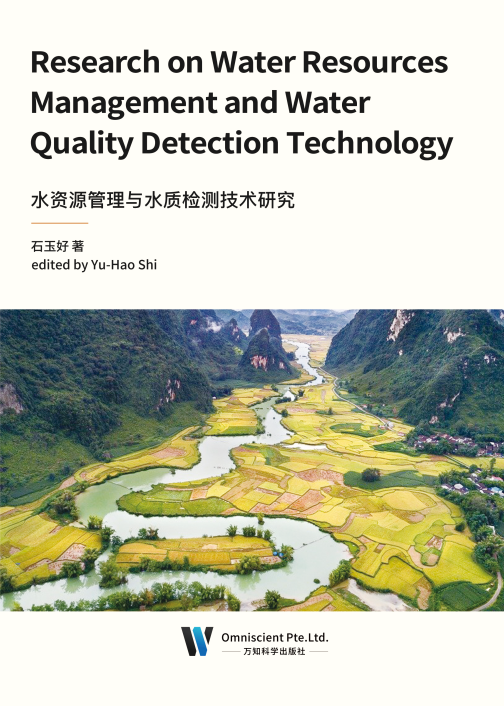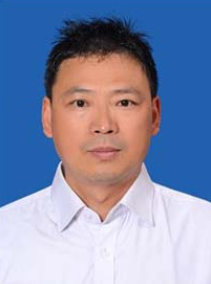
Preface
Water is one of the basic resources for human survival and economic and social development. However, the common problems of water shortage, water environment pollution and flood disaster around the world affect the long-term and effective utilization of water resources and the realization of sustainable development of human society. Only effective water resources management can guarantee the basic resources of economic and social development and achieve the dream of sustainable development of human society.
The main purpose of water quality detection is to accurately and effectively determine the types and concentrations of pollutants in water. It can be seen that the water quality types and concentrations of different water bodies are constantly changing, which needs a comprehensively evaluation of the internal quality of water bodies by the professional detection personnel. The main test items are mainly composed of macro index and micro index. The macro indexes mainly include temperature index, pH index, turbidity and composition of various suspended solids; the micro indexes mainly include toxic and harmful substances in water. Therefore, only through the results of the effective water quality detection can we clearly understand the specific situation of the water bodies so as to comprehensively guide people’s domestic water use.
The quality of water resources is related to the normal life of local residents and the healthy development of social economy. It is of great significance to improve the level of water quality detection and promote the smooth development of water quality management. In the face of increasingly scarce water resources, water departments must pay attention to strengthening the research on water quality detection and water quality management, formulating feasible water quality detection and management scheme and improving the level and quality of water quality detection so as to promote the stable development of water affairs.
前 言
水是人类赖以生存、经济社会赖以发展的基础自然资源之一,而当今世界普遍存在的水资源短缺、水环境污染、洪水灾害问题,都影响到了水资源长久有效的利用,影响到人类社会可持续发展的实现。有效的进行水资源管理才能保障经济社会发展基础性资源,实现人类社会可持续发展的的梦想。
水质检测的主要目的是准确有效地确定水中污染物的种类和浓度。可见,不同水体的水质类型和浓度在不断变化,需要专业的检测人员对水体的内部质量进行综合评价。检测项目主要由宏观指标和微观指标组成。其中,宏观指标主要包括温度指数、 pH 指数、 浊度、 各种悬浮物的组成, 而微观指标主要包括水中有毒有害物质。因此,只有通过有效的水质检测结果,才能清楚地了解水体的具体情况,从而全面指导人们的生活用水。
水资源质量关系到当地居民的正常生活和社会经济的健康发展。提高水质检测水平,促进水质管理工作顺利开展,对实现可持续发展具有重要意义。面对日益紧缺的水资源,水务部门必须重视,加强水质检测和水质管理研究,制定切实可行的水质检测管理方案,提高水质检测水平和质量,促进水务稳定发展。

Yu-Hao Shi, male, the Han nationality, was born in December 1971 in Yantai City, Shandong Province. He graduated from Shandong University in July 1996 with a bachelor’s degree. He is currently the head of the Water Environment Monitoring Section of Yantai Hydrological Bureau. He is also the deputy director, technical person in charge and authorized signatory of the Yantai Branch of Shandong Water Environment Monitoring Center. His research direction is water environment monitoring. He is engaged in water environment monitoring, evaluation and protection. He is responsible for the implementation of water quality monitoring in the water function zone of Yantai City and the evaluation of water resources carrying capacity in Yantai City. He is responsible for the preparation of reports such as “Annual Water Quality Monitoring and Evaluation Report for Water Function Zones” and “Yantai Water Resources Quality Evaluation Report”.
石玉好,男,汉族, 1971 年 12 月生,山东烟台人, 1996 年 7 月毕业于山东大学,本科学历。现任烟台市水文局水环境监测科科长、山东省水环境监测中心烟台分中心副主任、技术负责人、授权签字人。研究方向水环境监测方面,从事水环境监测评价与保护工作,负责烟台市水功能区水质监测、烟台市水资源承载能力评价等项目的实施,负责《年度水功能区水质监测与评价报告》《烟台市水资源质量评价报告》等报告的编制工作。